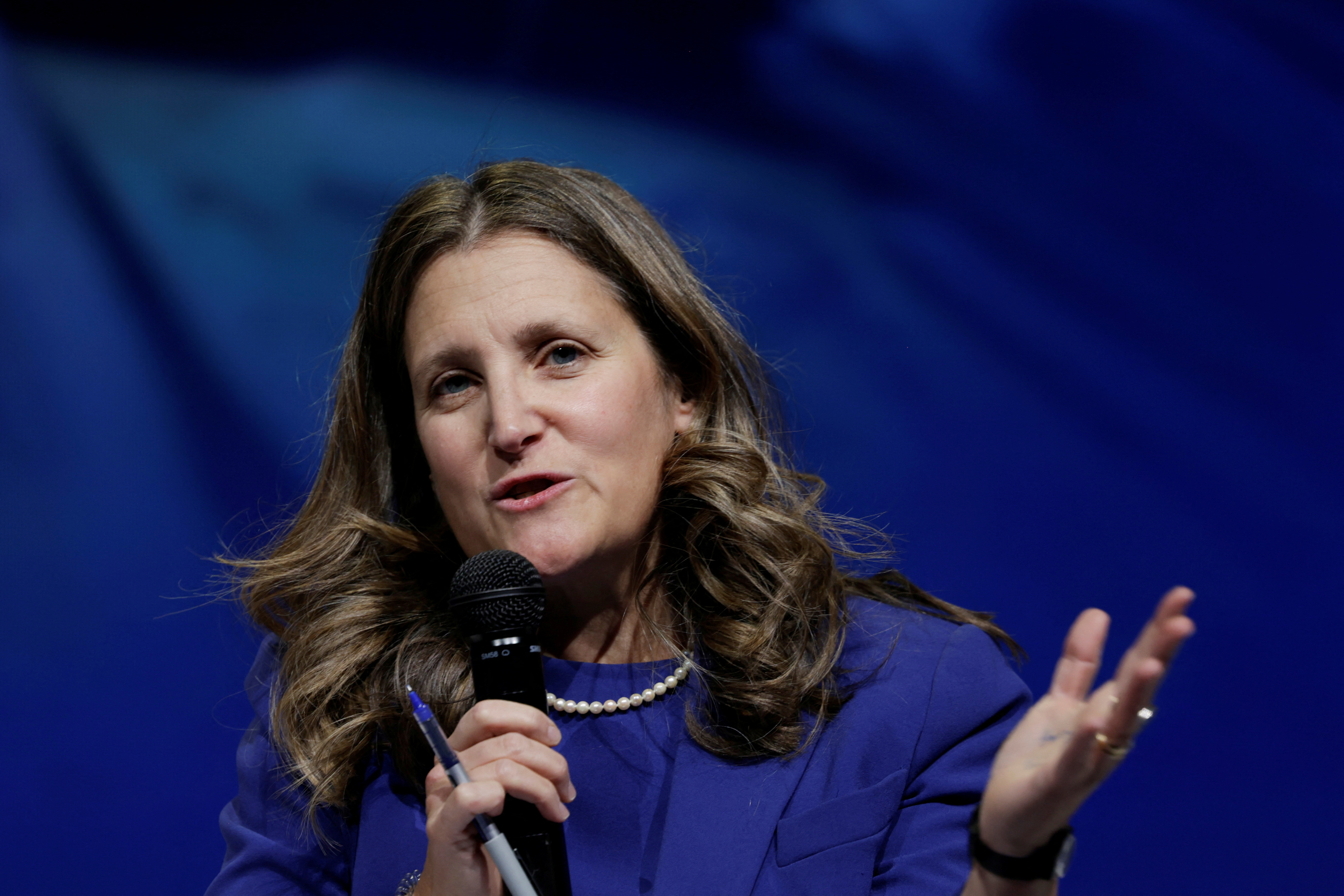[ad_1]

Canada’s Deputy Prime Minister and Minister of Finance Chrystia Freeland speaks during a panel on the fourth day of the annual meeting of the IMF and the World Bank, following last month’s deadly earthquake, in Marrakech, Morocco, October 12, 2023. REUTERS/Susana Vera/File photo Acquire Licensing Rights
OTTAWA, Oct 17 (Reuters) – Canada will take steps in the coming weeks to ease a rental-unit shortage exacerbated by Airbnb (ABNB.O) and other short-term rental platforms, Finance Minister Chrystia Freeland said on Tuesday.
Freeland said the government is examining options to ensure more short-term rentals become available as long-term rentals.
Canada, where population growth is exceeding the pace of housing construction, is the latest country to tackle the problem. Cities around the United States are more closely regulating short-term rentals, including by requiring hosts to obtain licenses and pay registration fees.
Florence, Italy has banned new short-term residential lets, while Australian tourist destination Byron Bay will limit the availability of some properties for short-term holiday rentals.
British Columbia on Monday said it was creating rules to regulate short-term rentals by requiring hosts to register with the province, increasing fines for breaking local rules and restricting rentals to only a portion of the principal residence.
In that province, there are 28,000 daily active short-term rental listings, up 20% from a year ago.
“While we are always willing to work with governments to address community concerns, strict home-sharing regulations have not alleviated the housing crisis in Canada, including those that are already in place in the communities (Freeland) mentioned: Toronto, Vancouver and Montreal,” Airbnb said in a statement.
Meanwhile, Canadian homeowners are also feeling pressure, due to high interest rates and increased mortgage payments.
Freeland said she had met with the CEOs of Canada’s largest banks over a week ago to discuss “tailored mortgage relief” for consumers as they struggle to make monthly mortgage payments.
“I told them (the banks) that it is my firm expectation that they abide by our government’s mortgage guidelines.”
With Canadians struggling to repay their debts, banks have put aside money in case of defaults, a move that limits overall profits.
According to government guidelines, financial institutions are required to provide support to variable-rate and fixed-payment consumers who are at risk, either as monthly payments surge or if they are only repaying interest.
Freeland’s comments come a day after the banking regulator Office of the Superintendent of Financial Institutions shelved some planned mortgage rules related to tighter regulatory limits on debt-service coverage.
Reporting by David Ljunggren in Ottawa and Nivedita Balu in Toronto; Editing by Alistair Bell and Rod Nickel
Our Standards: The Thomson Reuters Trust Principles.
[ad_2]
Source link
